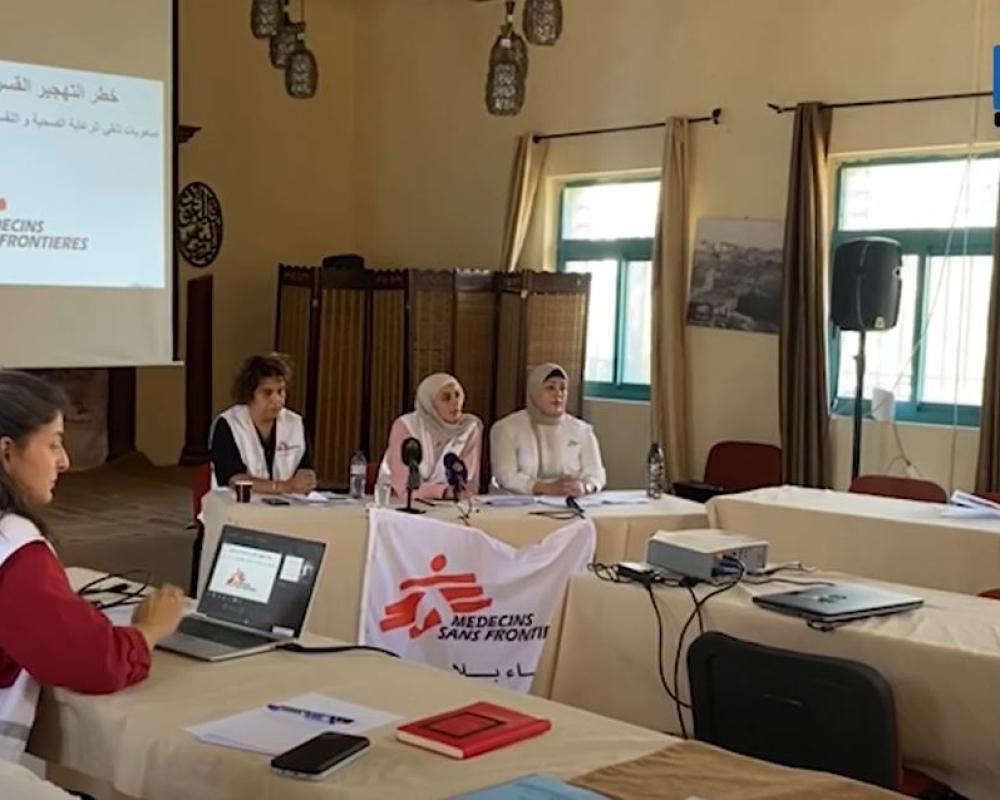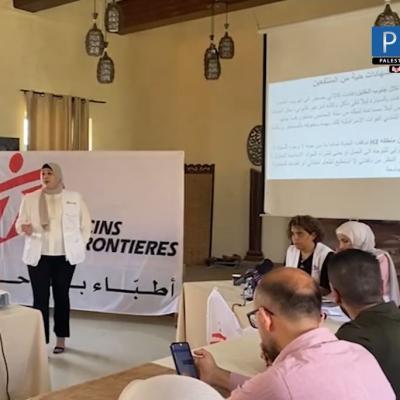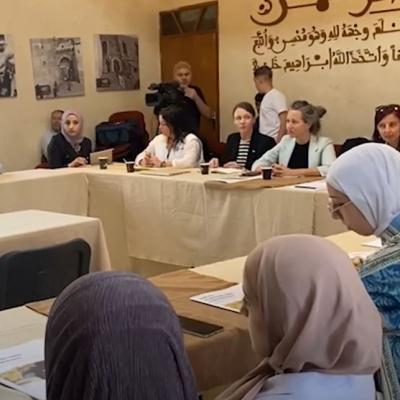
Hebron / PNN / Shahd Ghannam -
Médecins Sans Frontières (MSF) revealed during a conference held in Hebron that the challenges of healthcare and psychological care, primarily due to the practices and restrictions imposed by the Israeli army, have significantly increased since October 7th. During the conference, MSF presented its latest report detailing these challenges, emphasizing the difficulties faced by Palestinian residents in accessing healthcare.
Speakers at the press conference addressed the severe obstacles to healthcare access caused by significant mobility restrictions, repeated attacks, and impediments to reaching medical care. The report indicated that nearly 80% of patients from Masafer Yatta, who receive treatment at MSF clinics, confirmed that checkpoints are major barriers to accessing healthcare in the area.
Salam Al-Khatib, the media coordinator for MSF, discussed the objectives of the conference and the topics covered. She highlighted the threat of forced displacement for several residents of Hebron, the areas being targeted and worked in, and the testimonies presented in the report from beneficiaries of the organization's services, as well as from their field staff.
Al-Khatib added, "We conduct 15 mobile clinics daily to various locations in Masafer Yatta, striving to cover primary healthcare needs, including maternal and childcare and mental health services."

The report details the mental health effects resulting from recent security measures and fears of violence on the psychological well-being of Palestinians in Hebron. Approximately 97% of MSF mental health patients indicated that the Gaza war was a major factor affecting their mental health.
Children in Hebron face numerous psychological challenges. MSF psychologist Mona Sihairi stated, "One of the main issues we observe is the significant psychological stress experienced by children."
Sihairi mentioned the many attempts by doctors to reach out to them through home activities to provide continuous psychological support. She added, "Doctors are not psychologists, but they recognize the importance of psychological support for children."
Sihairi pointed out that the organization maintains constant communication with parents to be key sources of ongoing psychological support for their children. If any signs of deteriorating mental health are observed, the organization strives to provide the necessary services.
MSF nurse Taghreed Jibran revealed a significant shortage of nutritional needs in some areas due to varying political and economic conditions and lack of employment opportunities. Additionally, a large number of children suffer from anemia due to food scarcity, and pregnant women and the elderly experience malnutrition.

Jibran noted that some families go without food for at least 24 hours once a week, according to some testimonies.
The report also highlighted the physical effects of occupation practices amidst increasing physical violence, reduced access to medical care, financial difficulties leading to inadequate nutrition and clean water, and their negative impact on vulnerable populations, including pregnant women, children, infants, and the elderly.
Yasmine Al-Jaabari, assistant project coordinator at MSF, spoke about the difficulties the organization faces in carrying out its operations in the governorate. She mentioned that restrictions imposed by settlers and checkpoints have made it difficult to move between various areas in the governorate, especially in Masafer Yatta.
Al-Jaabari added that access to the H2 area has become more difficult due to security coordination issues following the war, forcing them to cancel travel to these areas for the safety of the team.
MSF concluded its press conference in Hebron by highlighting the profound health and psychological challenges faced by the Palestinian residents. Through the presented report and live testimonies, the magnitude of the obstacles preventing access to basic healthcare becomes clear, especially with the worsening situation after October 7th.
The organization reaffirms its commitment to providing assistance to citizens and ensuring the necessary healthcare and psychological support. MSF strives to reach residents in areas difficult to access due to security restrictions and occupation to ensure the provision of essential services and support to improve their health and psychological conditions.

